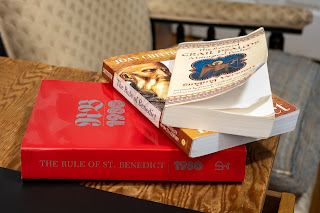For whatever reason this year I have been increasingly aware that Pentecost, the fiftieth day of Easter was coming, and today... Today is here. Today I also realize (maybe with just a little bit of help from God) that this is NOT the last day of Easter, only the last day of Easter Season 2020. It cannot be the last day of Easter in our lives or in the Church. It is not the last day of Easter until next year. We are Christians and the Church BECAUSE it is, and always is, Easter. We cannot be anything but Easter, today, tomorrow, always, and forever. Jesus rose on that first Easter and that changed everything...
One thought is we end Easter, the great celebration, not because Easter is over, but to give ourselves a chance to re-find what Easter really is, so we can study what it was like before Easter was, so we remember what a great Gift God has given us...
In my daily psalm reading I marvel at how well the Psalms capture the depths of my frustration as well as my joy in living every day. But, I do pause at the request (as in Psalm 104:35) to "Let sinners vanish from the earth," or that someone be blotted out, down through their children's children... Could I read the Psalms, or live my life as a Christian, without it always being Easter? Could my only hope be that I am remembered? How could I live without knowing that I am forgiven, and not just forgiven, but have a personal relationship with God, the Creator, Redeemer, and Spirit, that gave me, and all of us, not just the first Easter, not just a season of Easter, but Easter Always!
A Prayer:
Dear God: thank you for Easter, and Ester this year, even if we could not sing our Alleluias and celebrate in our familiar places. Thank you for guiding me and keeping me safe here in my house. Thank you for dying for me, even though I don't understand so many parts of this wonderful gift. And, most of all, thank you for being with me through all that has been, all that is now, and all that will ever be. And most of all, thank you for being with me when I am not thinking about being with you, or even thinking of you at all. Amen.

